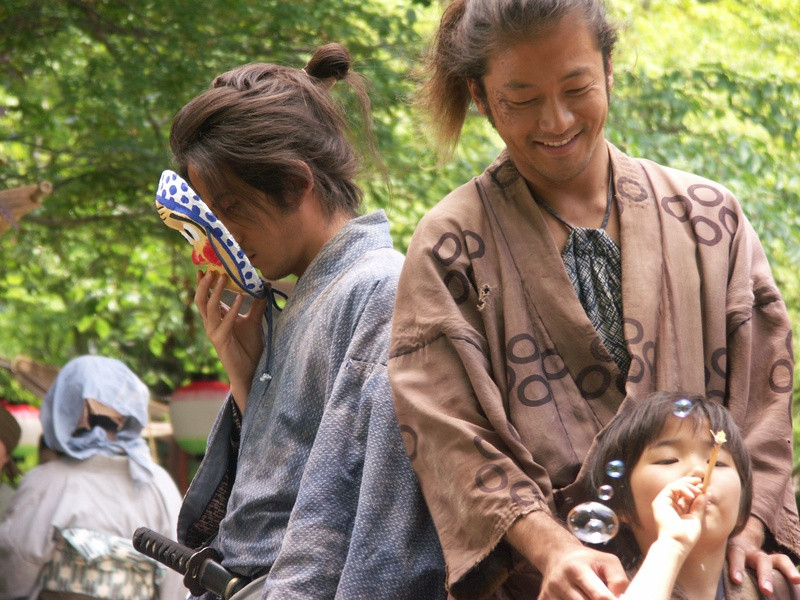
A highly untraditional samurai story about a young man who must avenge the death of his father, an obligation which he later begins to question. This brisk, humorous film with its enchanting production design calls attention to the old truth that evil need not be repaid with yet more evil.


It’s the beginning of the 18th century. Young samurai Soza must avenge the death of his father in order to defend the honour of his clan and acquire a large property as a reward. He leaves for the poor village of Edo, where his father’s murderer now lives a tranquil family life. Soza rents a small house here and opens a calligraphy school. The time comes when the cherry trees blossom and, during the village celebrations, a samurai story is played out before the public. During the performance, Soza realises that his swordsmanship isn’t up to much and the thought of revenge terrifies him. Time passes and Soza continues to have doubts about the task ahead of him: he succumbs to the slow tempo of life in Edo, to his eccentric neighbours and, above all, to the beautiful widow Osae… The film Hana, which paraphrases one of the most popular Japanese samurai tales, is an endearing, witty and inventive morality piece with an enchanting production design. The director intended the film as a metaphorical response to the international, and therefore also Japanese, retaliation strategy instigated after 9/11. “But I certainly didn’t want to make a political film; my intention is, above all, to entertain the audience,” says the director.
127 min / Color, 35 mm
Director Hirokazu Koreeda
/ Screenplay Hirokazu Kore-eda
/ Dir. of Photography Yutaka Yamazaki
/ Editor Hirokazu Kore-eda
/ Producer Shiho Sato, Nozomu Enoki
/ Production Hana Film Partners
/ Cast Junichi Okada, Rie Miyazawa, Tadanobu Asano
/ Contact Shochiku Co., Ltd.
www: www.kore-eda.com/hana

Hirokazu Kore-eda (b. 1962, Tokyo), one of the most important filmmakers of the middle generation, first attracted attention at the Venice festival with the film Maborosi (1995), a film elegy about a young woman and mother whose husband commits suicide for apparently no reason. After Life (1998) treats the theme of memory and also allows the viewer to take a look at the filming process. Distance (2001) describes people whose relatives were encouraged to commit suicide by members of a religious cult. The heroes of the film Nobody Knows (2004), which was included in competition at Cannes, are four children who try to carry on after their mother abandons them. He has also made several documentaries for Japanese TV dealing with people on the fringes of society, people with AIDS or brain damage, or Korean political refugees. In 1996 he received the highest Japanese award presented for a documentary film.
Shochiku Co., Ltd.
4-1-1 Tsukiji, Togeki Bldg. 12th Floor, Chuo-Ku, 104 8422, Tokyo
Japan
Phone: +81 355 501 623
Fax: +81 355 501 654
E-mail: [email protected]

Junko Kawaguchi
First-hand brews throughout the year.
Be among the first to learn about upcoming events and other news. We only send the newsletter when we have something to say.